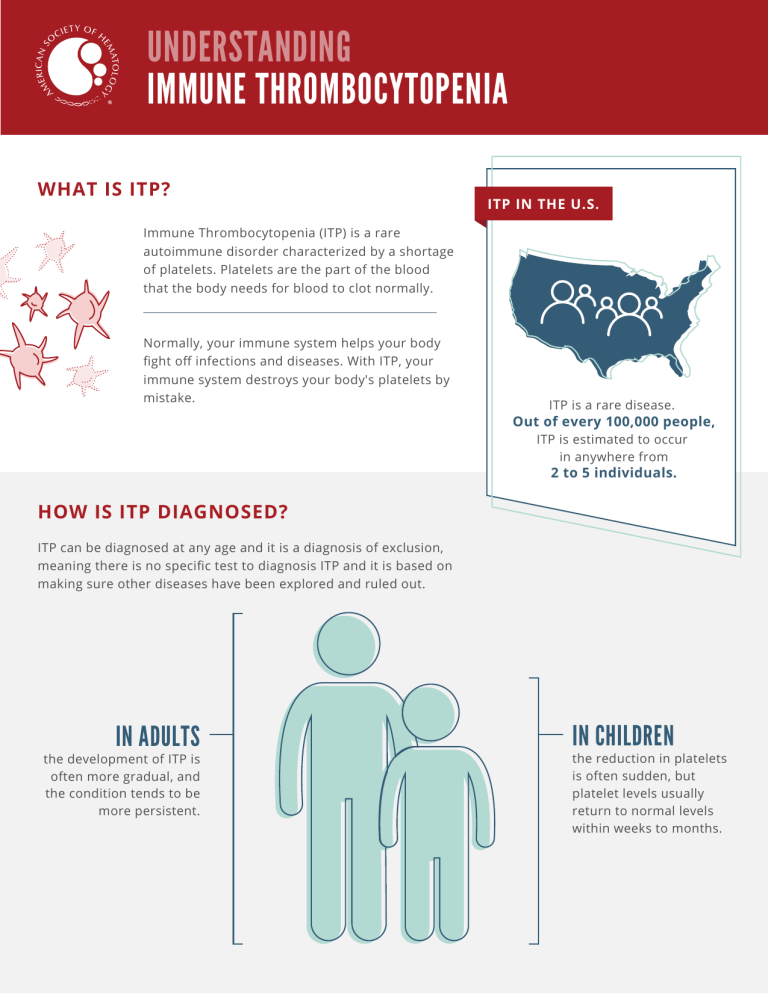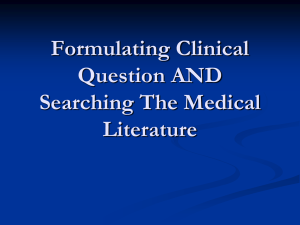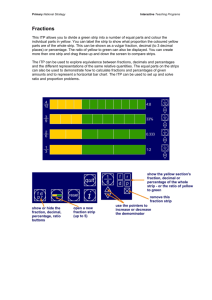
UNDERSTANDING IMMUNE THROMBOCYTOPENIA WHAT IS ITP? ITP IN THE U.S. Immune Thrombocytopenia (ITP) is a rare autoimmune disorder characterized by a shortage of platelets. Platelets are the part of the blood that the body needs for blood to clot normally. Normally, your immune system helps your body fight off infections and diseases. With ITP, your immune system destroys your body's platelets by mistake. ITP is a rare disease. Out of every 100,000 people, ITP is estimated to occur in anywhere from 2 to 5 individuals. HOW IS ITP DIAGNOSED? ITP can be diagnosed at any age and it is a diagnosis of exclusion, meaning there is no specific test to diagnosis ITP and it is based on making sure other diseases have been explored and ruled out. IN ADULTS the development of ITP is often more gradual, and the condition tends to be more persistent. IN CHILDREN the reduction in platelets is often sudden, but platelet levels usually return to normal levels within weeks to months. COMPLICATIONS OF ITP? For most people, ITP causes bruising and petechiae (small red dots on the skin). Sometimes ITP can cause significant mucosal bleeding episodes , such as nose bleeds or bleeding in the moist lining of the mouth. In severe cases, individuals may have gastrointestinal bleeding or blood in the urine or stool, or heavy and prolonged menstrual bleeding (menorrhagia). In very rare instances, bleeding inside the skull (intracranial hemorrhage) can occur, which can be life-threatening. Even without severe bleeding, ITP can still have a significant impact on a person’s quality of life in the form of fatigue, an inability to do the activities they enjoy, and side effects from treatments. NEW ASH ITP GUIDELINES ASH formed a multidisciplinary guideline panel that included adult and pediatric clinical experts, methodologists with expertise in ITP, and patient representatives. In partnership with the University of Oklahoma Health Sciences Center, the panel synthesized the research to develop new clinical practice guidelines for ITP that were published in late 2019. For more information on these new guidelines, visit: http://www.hematology.org/ITPguidelines The American Society of Hematology (ASH) (www.hematology.org) is the world’s largest professional society of hematologists dedicated to furthering the understanding, diagnosis, treatment, and prevention of disorders affecting the blood. For more than 60 years, the Society has led the development of hematology as a discipline by promoting research, patient care, education, training, and advocacy in hematology.


